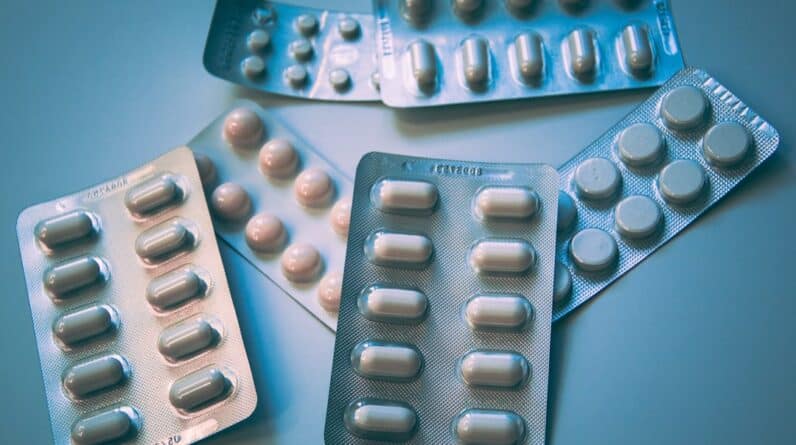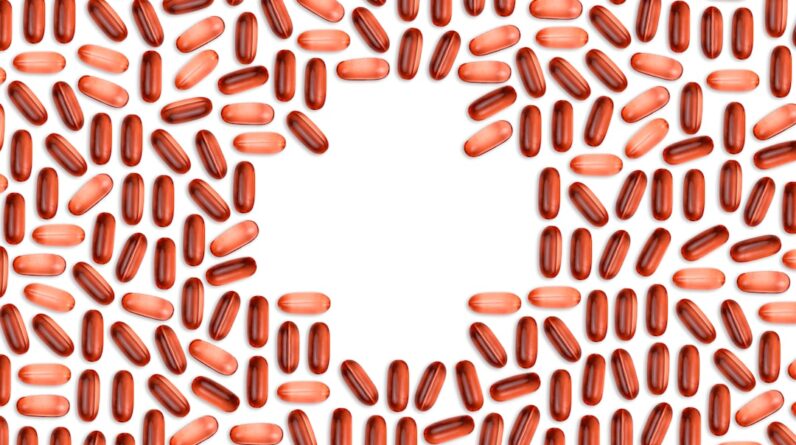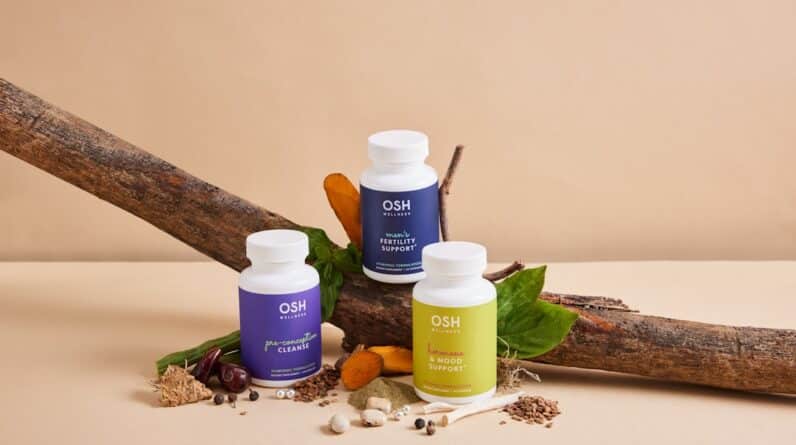Molybdenum is a trace mineral that plays a crucial role in various biological processes within your body. Although it is required in only small amounts, its significance cannot be overstated. This essential nutrient is involved in the metabolism of sulfur-containing amino acids and the detoxification of harmful substances.
Molybdenum acts as a cofactor for several enzymes, including sulfite oxidase, which helps convert toxic sulfites into less harmful substances. Without adequate levels of molybdenum, your body may struggle to perform these vital functions, leading to potential health issues. The importance of molybdenum extends beyond mere enzymatic functions; it also contributes to overall health and well-being.
It plays a role in the production of uric acid, which is necessary for the elimination of waste products from your body. Additionally, molybdenum has been linked to antioxidant activity, helping to combat oxidative stress and inflammation. By understanding the role of molybdenum in your health, you can appreciate why maintaining adequate levels of this mineral is essential for optimal functioning.
Key Takeaways
- Molybdenum is an essential mineral that plays a crucial role in various bodily functions, including metabolism and detoxification.
- Molybdenum supplements can improve overall health by supporting enzyme function, energy production, and detoxification processes.
- Molybdenum can be found in foods such as legumes, grains, nuts, and leafy vegetables, and the recommended daily intake for adults is 45 micrograms.
- Signs of molybdenum deficiency include sulfite sensitivity, increased risk of certain cancers, and impaired growth and development, which can be addressed with a supplement.
- Incorporating a molybdenum supplement into your daily routine can maximize health benefits, especially for individuals with specific health conditions such as sulfite sensitivity or certain genetic disorders.
The Benefits of Molybdenum Supplement: How can it improve your overall health and well-being?
Incorporating a molybdenum supplement into your daily routine can offer a range of health benefits that enhance your overall well-being. One of the primary advantages is its potential to support metabolic processes. By aiding in the breakdown of amino acids and the detoxification of harmful substances, molybdenum can help your body function more efficiently.
This can lead to improved energy levels and better overall vitality, allowing you to engage more fully in daily activities. Moreover, molybdenum supplements may contribute to better digestive health. By supporting the metabolism of sulfur-containing compounds, molybdenum can help maintain a balanced gut environment.
A healthy gut is essential for nutrient absorption and overall digestive function. Additionally, some studies suggest that molybdenum may have a role in reducing the risk of certain chronic diseases, such as cardiovascular issues and certain types of cancer, by promoting healthy cellular function and reducing oxidative stress.
Sources of Molybdenum: Where can you find it in your diet and how much do you need?

You can find molybdenum in a variety of foods, making it relatively easy to incorporate into your diet. Legumes, such as lentils and beans, are among the richest sources of this essential mineral. Whole grains, nuts, and leafy green vegetables also provide significant amounts of molybdenum.
For instance, foods like peas, spinach, and broccoli can contribute to your daily intake. By including these foods in your meals, you can ensure that you are getting enough molybdenum to support your health. The recommended dietary allowance (RDA) for molybdenum varies by age and gender but generally falls around 45 micrograms per day for adults.
While most people can meet their needs through a balanced diet, certain populations may require additional supplementation. If you are concerned about your molybdenum intake or have specific dietary restrictions, it may be beneficial to consult with a healthcare professional to determine the best approach for you.
Molybdenum Deficiency: What are the signs and symptoms, and how can a supplement help?
| Signs and Symptoms of Molybdenum Deficiency | How a Supplement Can Help |
|---|---|
| Fatigue | Supplementing with molybdenum can help improve energy levels. |
| Rapid heart rate | Molybdenum can support a healthy cardiovascular system. |
| Joint pain | Supplementing with molybdenum may help reduce joint discomfort. |
| Headaches | Molybdenum can support overall brain health and reduce the frequency of headaches. |
| Weakness | Supplementing with molybdenum can help improve muscle strength. |
Molybdenum deficiency is relatively rare due to its presence in many foods; however, it can occur in certain circumstances, particularly in individuals with specific health conditions or dietary restrictions. Symptoms of deficiency may include headaches, fatigue, and increased sensitivity to sulfites. In severe cases, it can lead to more serious health issues such as neurological problems or metabolic disorders.
Recognizing these signs early on is crucial for addressing any potential deficiencies. If you suspect that you may be deficient in molybdenum, a supplement could be an effective way to restore balance. By providing your body with the necessary amounts of this mineral, you can help alleviate symptoms associated with deficiency and support overall health.
However, it’s essential to approach supplementation thoughtfully and consult with a healthcare professional to determine the appropriate dosage and ensure that it aligns with your individual health needs.
To maximize the benefits of a molybdenum supplement, consider integrating it into your daily routine in a way that feels natural and sustainable for you. One effective strategy is to take the supplement at the same time each day, perhaps alongside a meal or another daily vitamin. This consistency can help you remember to take it regularly while also enhancing absorption when taken with food.
Additionally, pairing your molybdenum supplement with other nutrients that support its function can further enhance its effectiveness. For example, ensuring adequate intake of vitamins B6 and B12 may complement the metabolic processes that molybdenum supports. You might also consider keeping a food diary to track your dietary intake of molybdenum-rich foods alongside your supplement regimen.
This practice can help you identify any gaps in your nutrition and make adjustments as needed for optimal health.
Potential Risks and Side Effects: What should you be aware of before starting a molybdenum supplement regimen?
While molybdenum is generally considered safe when taken in appropriate amounts, there are potential risks and side effects associated with excessive supplementation. High doses of molybdenum can lead to toxicity, resulting in symptoms such as joint pain, diarrhea, or even more severe reactions like gout due to elevated uric acid levels. Therefore, it’s crucial to adhere to recommended dosages and avoid self-prescribing high doses without professional guidance.
Before starting any new supplement regimen, including molybdenum, it’s wise to consider any pre-existing health conditions or medications you may be taking. Certain medications may interact with mineral supplements, potentially affecting their efficacy or leading to adverse effects. Being aware of these factors will help you make informed decisions about incorporating molybdenum into your health routine.
Molybdenum Supplement and Specific Health Conditions: How can it benefit individuals with certain health issues?

Molybdenum supplementation may offer specific benefits for individuals dealing with certain health conditions. For instance, those with sulfite sensitivity or intolerance may find relief through adequate molybdenum intake since this mineral aids in the metabolism of sulfites. By supporting the body’s ability to process these compounds effectively, molybdenum can help reduce symptoms associated with sulfite sensitivity.
Additionally, research suggests that molybdenum may play a role in supporting cardiovascular health by promoting healthy blood pressure levels and reducing oxidative stress. Individuals at risk for heart disease or those managing hypertension might benefit from ensuring they have sufficient molybdenum levels as part of their overall health strategy. However, it’s essential to approach supplementation as part of a comprehensive plan that includes lifestyle changes and medical advice tailored to individual needs.
Consultation with a Healthcare Professional: When and how should you seek advice before starting a molybdenum supplement?
Before embarking on any new supplement journey, including molybdenum supplementation, consulting with a healthcare professional is crucial. They can provide personalized advice based on your unique health profile and dietary habits. If you have existing medical conditions or are taking medications that could interact with supplements, discussing these factors with your doctor will help ensure safety and efficacy.
When seeking advice from a healthcare professional about molybdenum supplementation, come prepared with questions about dosage recommendations, potential interactions with other medications or supplements you may be taking, and any specific health concerns you have. This proactive approach will empower you to make informed decisions about incorporating molybdenum into your health regimen while maximizing its benefits for your overall well-being.
Molybdenum is an essential mineral that plays a crucial role in various bodily functions. According to an article on why nutrition is important for health, getting an adequate amount of molybdenum through diet or supplements can help support overall well-being. It is important to differentiate between fact and fiction in supplement claims, as discussed in another related article, to ensure you are making informed choices about your health. Understanding the difference between nutrition and supplementation, as outlined in a third article, can also help you make the best decisions for your health.
FAQs
What is molybdenum?
Molybdenum is a trace mineral that is essential for human health. It is found in a variety of foods such as legumes, grains, nuts, and leafy vegetables.
What are the health benefits of molybdenum?
Molybdenum plays a crucial role in various bodily functions, including the metabolism of fats and carbohydrates, the production of energy, and the detoxification of harmful substances. It also supports the health of the nervous system and may help prevent certain types of cancer.
How much molybdenum do I need?
The recommended dietary allowance (RDA) for molybdenum is 45 micrograms per day for adults. Most people can meet their molybdenum needs through a balanced diet, but supplementation may be necessary for those with certain health conditions or dietary restrictions.
What are the symptoms of molybdenum deficiency?
Molybdenum deficiency is rare, but it can lead to symptoms such as rapid heart rate, headache, night blindness, and joint pain. Severe deficiency can also cause neurological problems and developmental delays in children.
Are there any risks associated with taking molybdenum supplements?
While molybdenum toxicity is rare, excessive intake of molybdenum supplements can lead to adverse effects such as diarrhea, gout-like symptoms, and anemia. It is important to follow the recommended dosage and consult a healthcare professional before starting any new supplement regimen.






